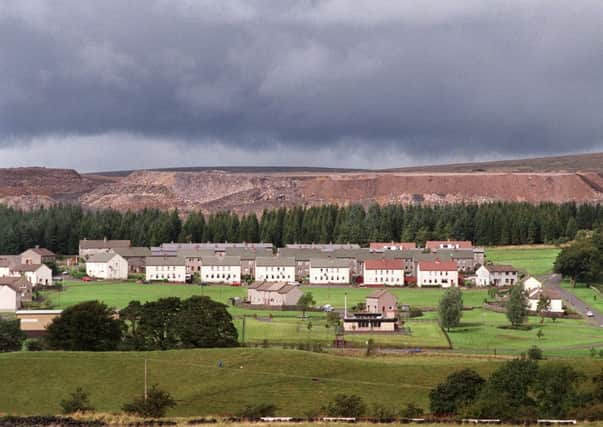Minefield in law for liquidators


IN APRIL 2013, the Scottish Coal Company Limited went into liquidation. In July 2013, the liquidators asked the Court of Session to confirm that they (and thus the liquidators of all Scottish companies) had the power to disclaim onerous property. A power to disclaim property is a right to abandon land, buildings or statutory permits that are a burden to the company. These items are usually valuable, so the last thing liquidators normally want to do is disclaim them – but sometimes the liabilities they carry with them outweigh their value. Such was the case with Scottish Coal.
Previously, it was unclear whether Scottish liquidators had power to disclaim property as no statute authorises it – unlike England, where the Insolvency Act gives liquidators of English companies the right to disclaim property. Scottish Coal’s liquidators asked the court to clear the uncertainty.
Advertisement
Hide AdAdvertisement
Hide AdScottish Coal operated mines in East Ayrshire, South Lanarkshire and Fife. When it was liquidated, it owned some former mines that had never been restored. Restoring the sites was anticipated to cost tens of millions of pounds.
The liquidators requested the court to confirm that they were legally entitled to disclaim, and thus abandon, some mines and statutory permits.
If permission were granted, the liquidators would no longer have to use the company’s scarce remaining resources to maintain the mines and comply with the permits. That would reduce clean-up costs and make selling the remainder of the business easier, resulting in jobs being preserved and more money being available for Scottish Coal’s creditors.
But it also meant that the local and environmental authorities (and the public generally) would be left with the clean-up costs for unrestored sites on their doorsteps. Someone would lose. Who would it be?
The original decision favoured the liquidators – they could disclaim certain open cast mines along with their operating licences. However, this decision was appealed, and, on 12 December, 2013, reversed: liquidators of Scottish companies do not have the power to disclaim onerous property and permits.
The appeal court ruled that, legally, Scottish liquidators cannot unilaterally abandon land so as to render it ownerless, and cannot abandon the obligations which run with that land (eg obligations to pump water away under operating licences). Accordingly, the liquidators became responsible for complying with the terms of the licences. In effect, the court decided the rights of the many (public authorities and the public generally) should prevail over the rights of the few (liquidators, creditors and employees).
The decision will have adverse implications for liquidators and creditors in Scotland compared to their English counterparts. Scottish liquidators will be obliged to use funds (which would have been available for creditors in English liquidations) to maintain properties and comply with permits.
In this case, these costs are expected to be greater than the money potentially available to creditors from selling Scottish Coal’s remaining assets. This could result in no funds at all being available to creditors. It’s likely that, when the money runs out, the liquidators will demit office and Scottish Coal will simply be dissolved. With no liquidators and no Scottish Coal, the decision may just postpone the day when someone must take ultimate responsibility.
Advertisement
Hide AdAdvertisement
Hide AdIf Scottish liquidators are unable to sell the remaining assets of insolvent companies, the chances of employees being retained to work those assets are reduced. In the Scottish Coal case, all mining operations stopped when the company went into liquidation, and employees were laid off. In a very similar case a couple of months earlier involving English mining company Aardvark TMC (who owned several mining sites in Scotland) the liquidators disclaimed the onerous properties and permits (as permitted in English law), and many jobs were saved.
The decision might just be a temporary win. It effectively forces liquidators to use the assets of defunct companies to pay ongoing maintenance and environmental obligations – but only while there is cash available. When the money runs out, the liquidators can do no more, and the authorities (and the public purse) are back on the hook.
The decision might be appealed to the Supreme Court. It may seem anomalous that the law produces completely different results north and south of the Border based purely on whether the defunct company’s registered office was in Scotland or England (not even on where the sites were situated). Whatever view you take, the current situation is ripe for governmental or parliamentary intervention. These are hugely important issues for Scotland and, no matter how well reasoned the decisions of the judges, the implications of the Scottish Coal case go far beyond the courtroom.
• Iain Doran is a real estate partner at Dundas & Wilson. He was the lawyer for the purchasers of the remaining Scottish Coal sites and for the liquidators of Aardvark TM www.dundas-wilson.com
SEE ALSO